When it comes to hiking, there are two main ways to navigate: using your smartphone or using a GPS device. Both have their pros and cons, which we will discuss in this blog post. So, which is better for hiking? Let’s take a look!
What Is A GPS For Hiking?
A GPS for hiking is a device that uses satellite technology to give you your exact location on a map, even if you don’t have cell service.
Most phones now come with built-in GPS, but if yours doesn’t or you want something more reliable, you can buy a separate handheld GPS unit.
Garmin and TomTom are two of the most popular brands. [1]
Why Use The GPS For Hiking?
There are several reasons to use a GPS for hiking. First, a GPS can be more accurate than a smartphone. This is because smartphones rely on cellular towers, which can be few and far between in remote areas. Second, a GPS can provide more information than a smartphone. This includes topographical maps and elevation data. Finally, a GPS can be used even if there is no cell phone service. This can be important in an emergency situation.
Where Can We Use The GPS Hiking Device?
GPS hiking devices can be used anywhere in the world where there is a clear view of the sky. This means that you can use it in most places, including woods and mountains. However, there are some places where GPS signals cannot reach such as inside a building or car.
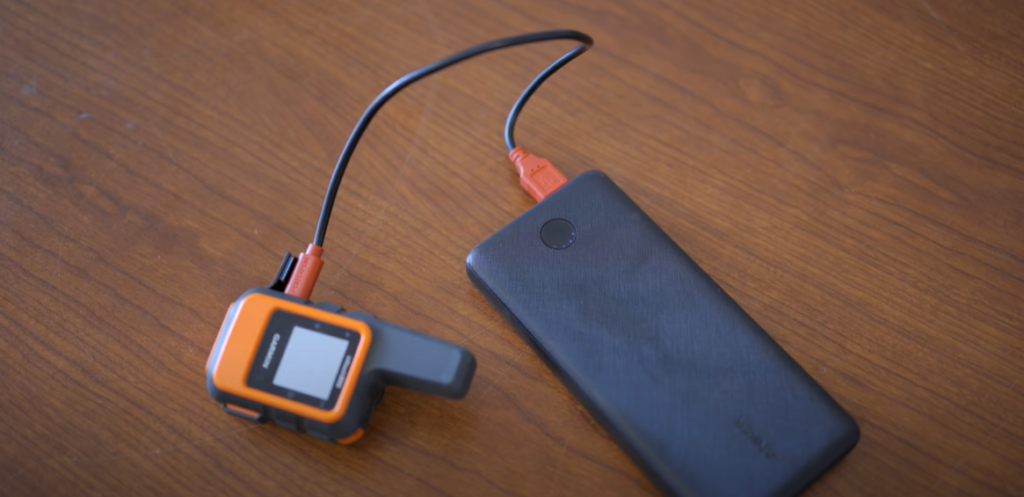
Pros And Cons Of A Smartphone Navigation For Hiking
Pros
Ease of Use
Most people are already familiar with how to use a smartphone, so there is no need to learn anything new.
Size
Smartphones are small and lightweight, making them easy to carry on a hike.
Battery Life
Smartphones typically have better battery life than GPS units, so you won’t have to worry about running out of power during your hike.
Screen
The screen on a smartphone is typically larger and easier to read than the screen on a GPS unit.
Budget
Smartphones are typically less expensive than GPS units.
Syncing
You can easily sync your smartphone with other devices, such as a laptop or tablet.
Cons
Accuracy
Smartphones can be less accurate than GPS units, especially when used in areas with poor cell reception.
Map Updates
You’ll need to make sure you have the latest map data downloaded before heading out on your hike, which can be an additional expense. GPS units are designed specifically for navigation, so they tend to be more accurate than smartphones.
Quality of Build
GPS units are designed to withstand the rigors of outdoor use, so they tend to be more durable than smartphones.
Screen Size and Resolution
GPS units usually have a smaller screen than a smartphone, and the resolution is not as good, making it difficult to read map data.
New Maps
If you want to hike in a new area, you’ll need to purchase new map data for your GPS unit. With a smartphone, you can simply download a new app or use an existing one that includes the area you want to hike.
Pros and Cons of GPS for Hiking
Pros
Batteries
GPS units tend to have very good battery life. You can often get 20 hours or more out of a single charge, even when using the backlight. This means that you don’t have to worry about your GPS running out of juice in the middle of a hike. Smartphones, on the other hand, can be a real drain on your battery. Even if you’re not using it for anything but hiking, a smartphone can lose its charge quickly. If you’re planning a long hike, you might want to consider bringing along a backup power source for your phone. [2]
Accuracy
A GPS unit is designed specifically for navigation and is typically much more accurate than a smartphone. When you’re hiking in unfamiliar territory, you want to be able to rely on your GPS to give you the most accurate information possible.
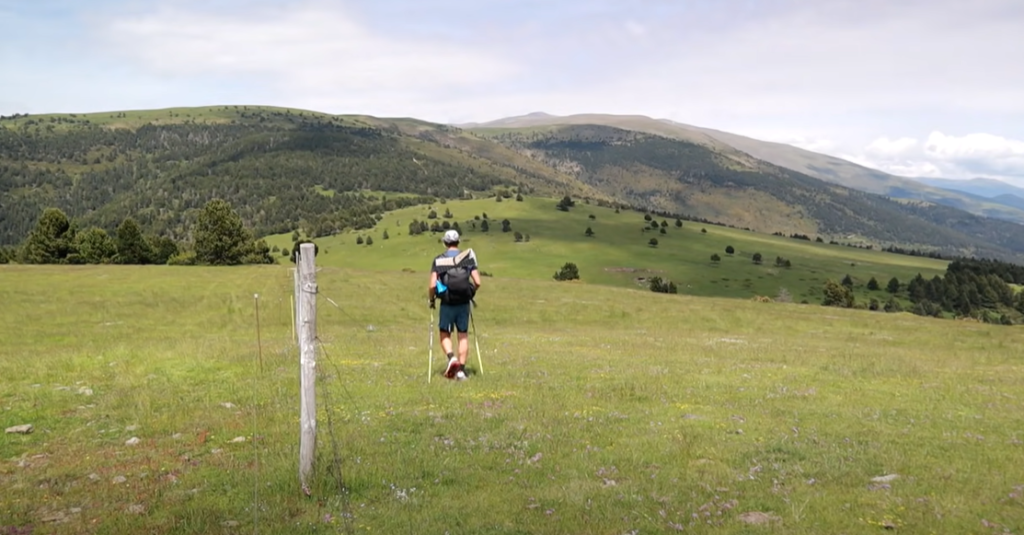
Ease of use
GPS units are designed to be easy to use, even in difficult situations. The best units have large buttons and an easy-to-read display that can be seen even in direct sunlight. Smartphones can be more difficult to use, especially if you’re trying to operate them with gloves on or in bright sunlight.
Durability
GPS units are designed to withstand the rigors of outdoor use. They’re often waterproof and can stand up to being dropped or banged around. Smartphones, on the other hand, are delicate devices that can be easily damaged. [3]
Intent
GPS units are designed specifically for navigation, so they tend to have more and better navigation features than smartphones. If you’re serious about hiking, a GPS unit is the better choice.
Cons
Price
GPS units can be expensive, especially if you want one with all the bells and whistles. Smartphones, on the other hand, are relatively inexpensive.
Complexity
GPS units can be complex devices, and they often require a bit of time to learn how to use them effectively. Smartphones are usually much easier to use, since most people are already familiar with how to use them.
Size
GPS units can be bulky and difficult to carry, especially if you’re planning a long hike. Smartphones are typically smaller and lighter, making them easier to carry.
Smartphone vs. GPS: Which One Is Better for Hiking
When it comes to hiking, people have different preferences for which technology they bring along. Some prefer to use their smartphone as their main navigational tool, while others choose to bring a GPS device specifically designed for hiking and other outdoor activities. So, which one is better?
It really depends on your needs and preferences as to which one is better for you. If you want a device that can do more than just navigation, then a smartphone is probably a better choice. But if navigation is your primary concern, then a GPS device is probably a better option.
Precautions When Using Your Smartphone as a GPS Hiker
If you’re going to use your smartphone as a GPS device when hiking, there are some things you should keep in mind to ensure a safe and successful trip. First and foremost, make sure your phone is fully charged before you head out. It’s also a good idea to pack a backup power source, such as a portable charger, in case your phone runs out of juice while you’re on the trail.
Another thing to consider is the type of data plan you have for your phone. If you’re only planning to use your phone for occasional map checks and emergency calls, then a basic data plan should suffice. However, if you’re planning on using your phone’s GPS features extensively, then you’ll need a data plan that offers unlimited data. Otherwise, you could end up with a hefty bill at the end of the month.
Lastly, be aware of your phone’s limitations when using it as a GPS device. Unlike dedicated GPS devices, smartphones can’t give you real-time information on your location. They also tend to have shorter battery lives, so you’ll need to take this into account when planning your hike. [4]
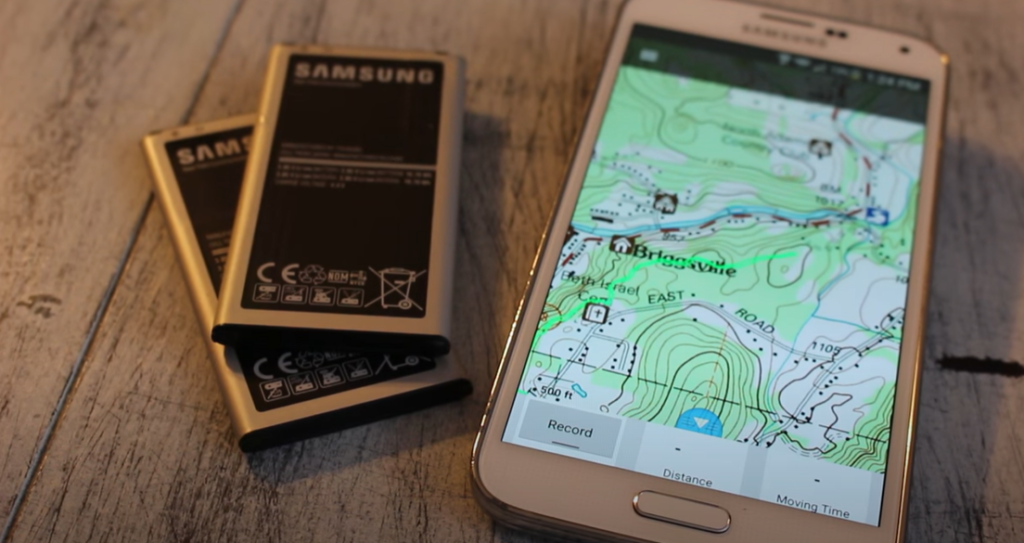
Things to Consider When Choosing GPS for Hiking
There are a few things you should consider when choosing the best GPS for hiking. First, you need to decide what features are most important to you. Do you need a GPS that is waterproof? Do you need one with topographic maps? Would you like a unit that can track your progress and show your location on a map?
Second, you need to consider the size of the GPS unit. Some units are very small and can easily fit in your pocket, while others are larger and more cumbersome to carry.
Third, you need to think about battery life. Some GPS units have removable batteries that can be swapped out, while others have rechargeable batteries. Consider how long you will be hiking and whether or not you will have access to a power source to recharge your GPS unit.
Fourth, you need to decide how much money you are willing to spend on a GPS unit. GPS units can range in price from a few hundred dollars to over a thousand dollars. Choose the unit that fits your budget and needs.
Fifth, you need to make sure the GPS unit you choose is compatible with your smartphone. Some units use Bluetooth to connect to your phone, while others use a specific app. Make sure the unit you choose will work with your phone before you make your purchase.
Sixth, if you are planning on using your GPS unit for geocaching, make sure the unit you choose has this capability. Geocaching is a game where you use GPS coordinates to find hidden treasures. Some units come with preloaded geocaches, while others allow you to input the coordinates yourself.
Challenges When Using GPS for Hiking
There are a few challenges that you may face when using GPS for hiking.
First, the battery life on most GPS devices is quite short. This means that you will need to either bring along a backup battery or be prepared to hike in the dark.
Second, GPS signals can be interfered with by things like trees and mountains. This means that your device might not work as well in certain areas.
Third, GPS devices can be quite expensive. This might not be a problem if you only hike occasionally, but if you hike frequently, it might be worth investing in a more expensive GPS device that has more features and is better quality. [5]
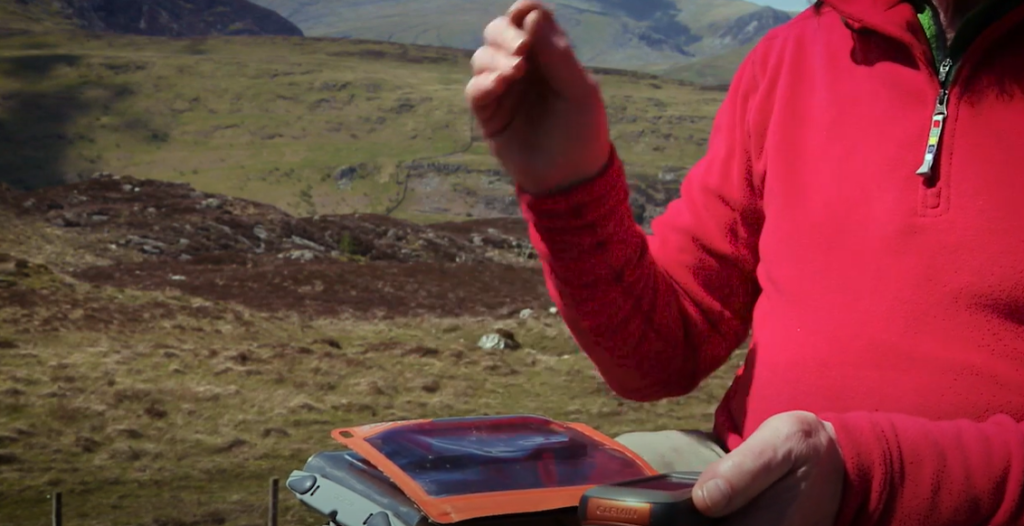
FAQ
Is a GPS better than a phone?
There is no easy answer to this question. It depends on what you value most when hiking. If you prioritize simplicity, then a smartphone is probably the better option for you. Smartphones are designed to be user-friendly and easy to carry around. They also typically have longer battery life than GPS devices. On the other hand, if you prioritize accuracy and navigation, then a GPS is the better choice. GPS devices are designed with hikers in mind and usually come equipped with features like topographic maps and compass displays. They also tend to be more accurate than smartphones when it comes to tracking your location. Ultimately, the decision of which device to use while hiking comes down to personal preference. Experiment with both options and see what works best for you.
What are the benefits of using a GPS?
Some benefits of using a GPS system while hiking:
- A GPS can help you find your way if you get lost.
- A GPS can track your location so you can be found in an emergency.
- A GPS can help you plan your hike and find the best route.
- A GPS can give you information about the terrain, weather, and conditions on the trail.
What are the benefits of using a smartphone?
- A smartphone can also help you find your way if you get lost.
- A smartphone can also track your location so you can be found in an emergency.
- A smartphone can also help you plan your hike and find the best route.
- A smartphone can also give you information about the terrain, weather, and conditions on the trail.
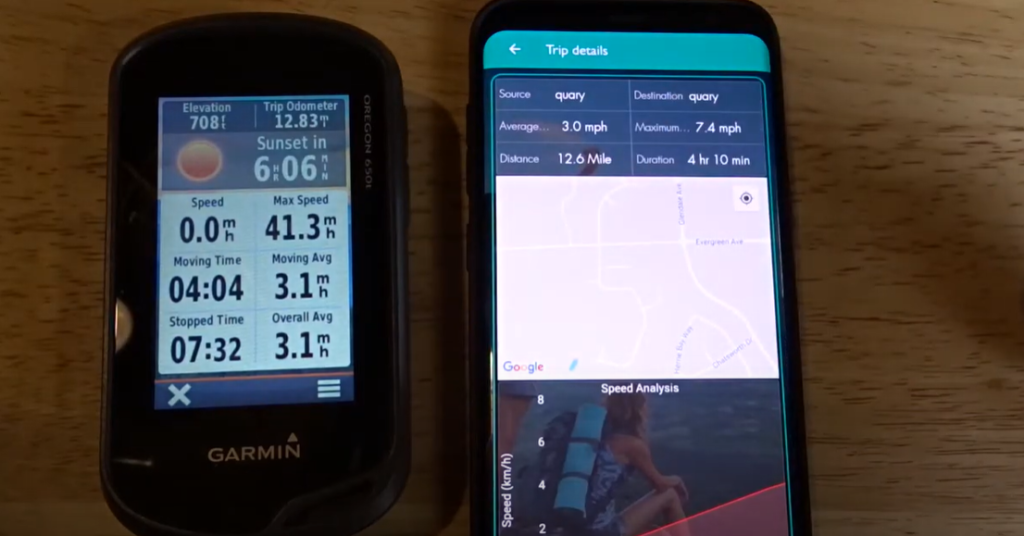
Do you need GPS for hiking?
This is a common question for anyone who is new to the sport of hiking, and the answer isn’t always simple. While a GPS can be a helpful tool on hikes, there are also some downfalls to using one. In general, it’s best to have both a GPS and a smartphone with you on hikes. That way, if one device fails or doesn’t have a signal, you have another way of getting back to safety.
There are several things to consider when deciding whether or not to bring a GPS on a hike. One is the length of the hike. If you’re only going out for a short day hike, chances are good that you won’t need GPS assistance. However, if you’re planning an overnight hike or something longer, it’s a good idea to have a GPS with you. Another thing to consider is the terrain. If you’re hiking in an area with lots of trees or other obstacles that could block satellite signals, you may not be able to get a GPS signal. In this case, having a smartphone with mapping capabilities can be very helpful. Finally, consider your experience level. If you’re new to hiking, bringing a GPS can give you some peace of mind knowing that you have an extra layer of safety if something goes wrong.
Can I use my phone for hiking?
This is a question we get a lot. And the answer is…it depends. Let’s break it down. GPS units are purpose-built for navigation and typically offer more detailed topographic maps than what you can find on a phone. They also usually have longer battery life, which can be critical when you’re out on an all-day hike. On the other hand, smartphones are much more versatile devices and most of us already have one with us everywhere we go. If you have a decent data plan, you can also use your phone as a GPS unit, provided you have the right app.
Can I use Google Maps for hiking?
If you’re just starting out, an app like Google Maps can be a good way to get your bearings in the wilderness. However, there are some limitations to consider. First, while Google Maps is great for finding your way around cities, its rural mapping leaves something to be desired. This is especially true if you’re planning to hike off the beaten path. Second, even if you have a solid data signal, using Google Maps can quickly drain your battery. If you’re going to be relying on your phone for navigation, it’s important to have a backup power source.
What about other hiking apps?
There are a number of apps designed specifically for hikers and outdoor enthusiasts. These apps often include features like topographic maps, real-time GPS tracking, and even trail conditions reports. Some of our favorites include AllTrails, Gaia GPS, and MapMyHike.
Is Garmin or iPhone more accurate?
When it comes to GPS units, Garmin is one of the most popular brands. However, that doesn’t necessarily mean it’s the best option for everyone. iPhones also have built-in GPS capabilities and, in our experience, they’re just as accurate as dedicated GPS units. There’s no right or wrong answer when it comes to choosing between a smartphone and GPS unit for hiking. It really comes down to personal preference and what you need from your device.
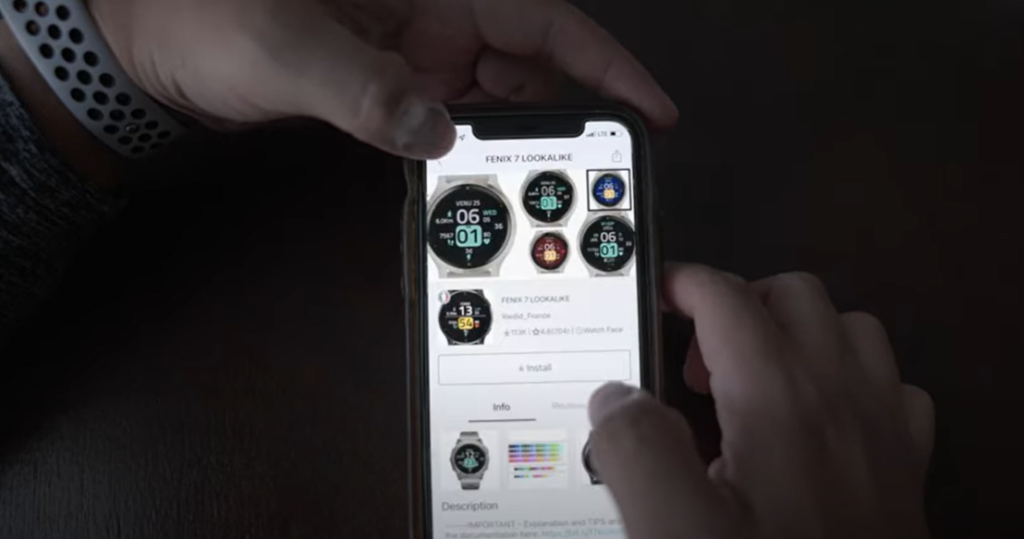
Should I take my phone backpacking?
It’s a question that has loomed over many a hiker’s heads. On one hand, your phone can be a powerful tool with many features that could come in handy while on the trail. On the other, it can be a major source of distraction and an unnecessary weight to carry. So, what’s the verdict? Is it better to hike with a smartphone or GPS device? To answer this question, we must first understand the difference between these two devices and how they can be used while hiking. A smartphone is essentially a handheld computer that also happens to make calls. It runs on a mobile operating system such as iOS or Android and has access to apps, which are small programs that perform specific tasks. Many of these apps are designed for use while hiking, such as maps, compasses, and GPS tracking. A GPS device is a standalone device that is specifically designed for navigation. It uses satellite signals to determine your location and can provide detailed mapping information. While most smartphones now have GPS capabilities built-in, dedicated GPS devices usually offer more accurate readings and longer battery life.
How do you track someone while hiking?
There are a few different ways to track someone while hiking. The most common method is using a GPS tracker. This is a small, hand-held device that uses satellite signals to determine your location and then displays this information on a map. You can use it to see where you are, plan your route, and track your progress. GPS devices usually have long battery life and are very accurate, making them the preferred choice for serious hikers. However, they can be expensive and require some tech savvy to use effectively. Another option for tracking someone while hiking is using a smartphone app. There are many different apps available that use GPS to track your location and provide mapping information. Some of these apps also allow you to share your location with others, so they can see where you are and how you’re doing. However, smartphone apps can be less accurate than GPS devices and often have shorter battery life.
Useful Video: GPS Unit Vs Smart Phone | Which Is Better For Mountain Biking?
Conclusion
So, what’s the verdict? Is a smartphone or GPS better for hiking? The answer may surprise you – both have their advantages and disadvantages.
If you’re looking for something lightweight and low-cost, your best bet is a smartphone. However, if you want the most accurate data and don’t mind carrying around a bit more weight, then a GPS is the way to go.
No matter which device you choose, make sure to download any necessary apps or maps before you head out on your hike. And most importantly, enjoy the outdoors!
References:
- https://www.rei.com/learn/expert-advice/gps-receiver.html
- https://www.thegreatoutdoorsmag.com/uncategorised/gps-watches-8-of-the-best-reviewed/
- https://www.advnture.com/how-to/choose-a-gps-device-for-hiking
- https://www.cleverhiker.com/blog/how-to-use-your-phone-as-a-gps-device-for-backpacking
- https://www.hillwalktours.com/walking-hiking-blog/hiking-with-gps-what-are-the-advantages/




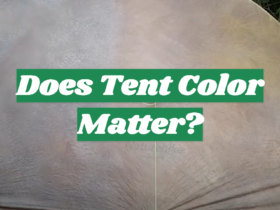
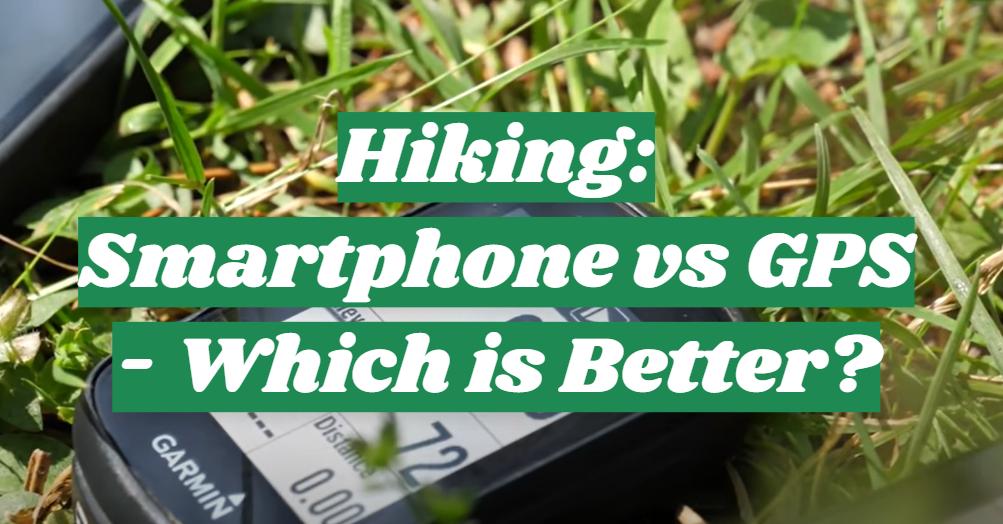




Leave a Review